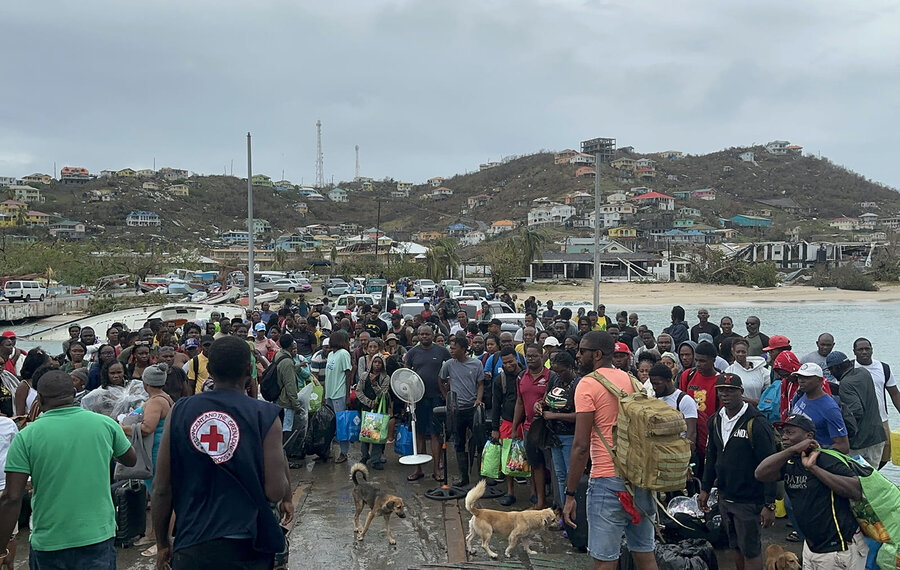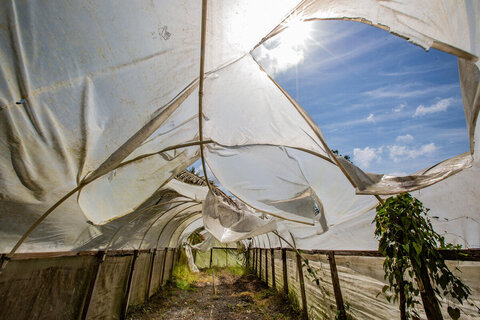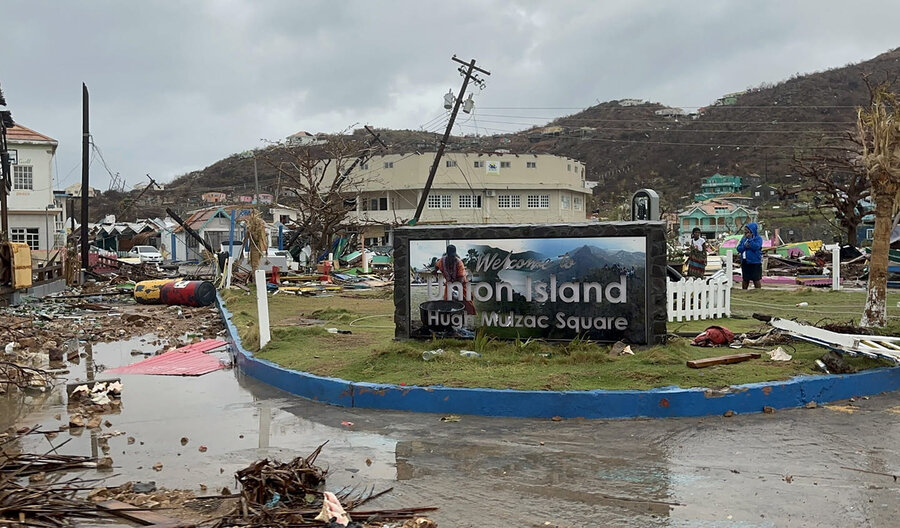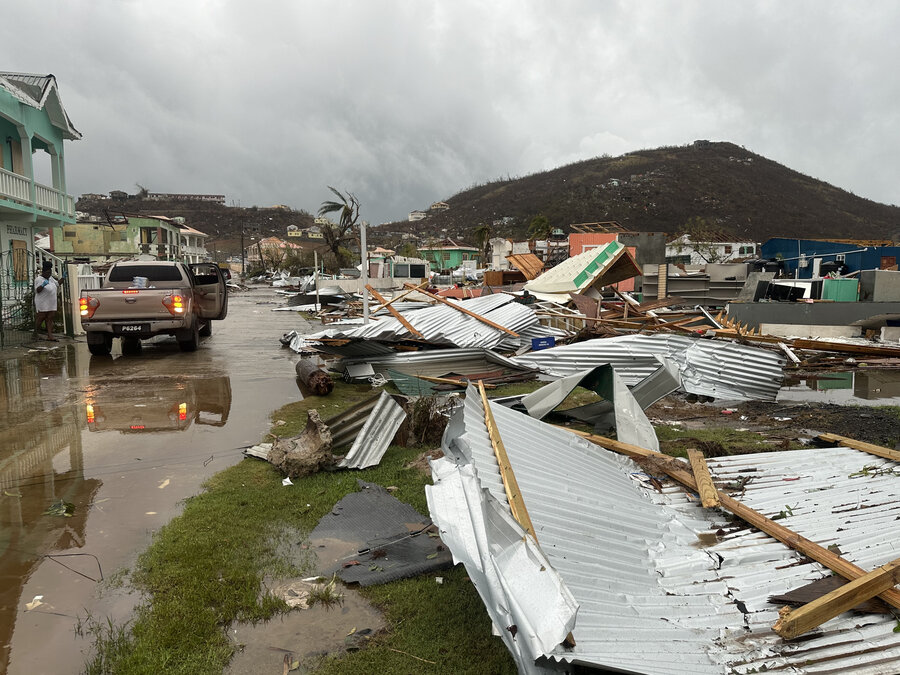Climate emergency: WFP stands ready as Hurricane Beryl wreaks havoc across the Caribbean

World Food Programme (WFP) teams across the Caribbean are taking stock of Hurricane Beryl impacts after it struck Jamaica on Wednesday afternoon as a dangerous category 4 hurricane. In an unprecedented start to the 2024 hurricane season, since Monday Beryl has wreaked havoc in Barbados, Grenada, and Saint Vincent and the Grenadines.
In Union Island, the southernmost island of Saint Vincent and the Grenadines, WFP staff encountered a tableau of sheer devastation. Homes bore the scars of the hurricane’s fury, their roofs in tatters, and walls laid bare to the elements. Trees lay strewn across roads and fields, uprooted by the relentless force of wind and rain.
A piece of blue sky: How WFP Hurricane Lisa recovery cash boosts farmers in Belize

Electricity poles were bent and broken in streets devoid of power, leaving the community in darkness while rains continued days after the passage of the eye of the hurricane. The WFP team joined state officials for a mission on a ferry to deliver government food and non-food assistance to the affected people.
“My experience with Beryl was terrible,” said local resident Jolene Alexandre, after WFP arrived on the island. “When the roof of our house was ripped, I told my children to go under the bed and then under the table. I tried to hold the door, but the wind was so strong that I was hurt on my hand and on my foot. We are in shock. This is the first time I and the people of Union Island experience this type of hurricane.”
'Shelters are filled across [Jamaica] and nearly half a million people are without power'
Dana Sacchetti, head of WFP’s satellite office in Kingston, bore witness to a devastating combination of strong winds, torrential rains and storm surges lashing Jamaica for several hours. “The storm wouldn’t let up,” he said.
“Shelters are filled across the island and nearly half a million people are without power. WFP has been closely monitoring the impact of the hurricane, in collaboration with partners in government who will be working in the coming days to support those affected by this historic hurricane.”
Hurricane Beryl is earliest Category 5 hurricane on record, sparking fears on what is in store for the Small Island Developing States of the Caribbean in what is forecasted to be an above-average hurricane season.

“We’ve never seen a Category 4 hurricane in the Caribbean in June and never before a Category 5 until much later in the year,” said Brian Bogart, Country Director designate at WFP’s Multi-Country Caribbean office in Barbados who is currently in Saint Vincent and the Grenadines, where he witnessed the scale of the hurricane first-hand.
“We are seeing the destruction of homes, infrastructure, livelihoods, with people exposed to the heavy rains that have fallen in the wake of Hurricane Beryl,” said Bogart. “We are working very closely with government authorities and partners to try and set up the infrastructure for coordinating an effective response to this situation.”
Checking needs
He added: “People are trying to clear the streets, put their lives back together bit by bit, waiting for power to come back on. But in the areas that were at the front of the eye, homes were completely levelled, and peoople don't even have the capacity to meet their basic needs.” In Grenada, Beryl forced 3,000 people into shelters as home infrastructure on the island of Carriacou was severely damaged on Monday. A WFP team is on the ground supporting the authorities with assessments and early response.
The Government of Saint Vincent and the Grenadines has asked WFP to provide emergency telecommunications support and emergency logistics coordination, and to conduct humanitarian needs assessments. Around 1,000 people have been uprooted in the country, with massive power outages and interruptions to basic services. Ninety percent of the houses on Union Island have been severely damaged or destroyed.

In Barbados, WFP is supporting the Caribbean Disaster Emergency Management Agency (CDEMA) and the local disaster office in preparing emergency food kits that will be shipped and distributed to people in the affected islands. These government food kits include rice, cooking oil, salt, tuna, lentils, corned beef, biscuits and peas. The Government of Jamaica has requested WFP’s support with the digital surveying of hurricane-hit people to assess humanitarian needs.
Through WFP’s ongoing support, Caribbean governments and partners are collaborating to mobilize trained emergency responders in affected and neighboring countries, ensuring a coordinated regional response.



